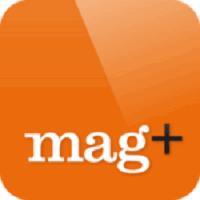Description

Codeless App

Frontegg
Comprehensive Overview: Codeless App vs Frontegg
As of my last update, Frontegg is not specifically branded as a "Codeless App," but instead focuses on providing a suite of development tools for adding authentication and user management features to web applications. However, here's a comprehensive overview based on the available information:
a) Primary Functions and Target Markets
Frontegg:
- Primary Functions: Frontegg provides software-as-a-service (SaaS) platforms with a suite of pre-built user management functionalities. These include features for user authentication (Single Sign-On (SSO), Multi-Factor Authentication (MFA)), authorization, user profile management, and more. The goal is to allow companies to rapidly implement these user-centric capabilities without having to develop them from scratch.
- Target Markets: Frontegg primarily targets small to mid-sized businesses (SMBs) and startups that are building SaaS applications. These are companies that want to quickly integrate scalable and secure user management features to enhance their apps without dedicating extensive resources to their development.
b) Market Share and User Base
Frontegg is a player in a niche market focused on providing user management functionalities to SaaS applications. While it isn't a household name like some more prominent SaaS providers, it serves a critical need for SaaS application development. Because this niche is highly competitive, Frontegg's market share relative to large-scale providers might be smaller, but it positions itself effectively within its target market.
Precise figures on Frontegg's market share and user base aren't publicly disclosed. The platform's adoption may be particularly strong among those who prioritize rapid deployment and robust security in user management, benefiting startups and businesses that require streamlined operations.
c) Key Differentiating Factors
Frontegg:
- Ease of Integration: One of Frontegg’s significant strengths is the simplicity and speed with which developers can integrate its tools into their applications. This ease of use is crucial for startups and SMBs that may lack extensive development resources.
- Comprehensive User Management: Frontegg offers a wide range of built-in features, including complex authentication flows, advanced security protocols, and user profile management out of the box.
- Customization and Flexibility: While it aims for a codeless approach to user management, Frontegg still provides ample opportunities for customization, allowing developers to tailor its functionalities to fit their specific application needs.
- Scalability: The platform is designed to scale alongside growing businesses, handling increases in user demand without compromising on performance or security.
- Focus on Security: Frontegg emphasizes strong security features such as MFA and SSO, crucial for companies handling sensitive user data.
In summary, Frontegg is designed to streamline the process of adding user management features to apps, making it particularly attractive to developers at startups and SMBs looking to save time and resources. Its focus on security, ease of integration, and customization capabilities distinguish it in a competitive market, although precise data on market share and user adoption would require specific industry analyses and reports.
Contact Info

Year founded :
Not Available
Not Available
Not Available
Not Available
Not Available

Year founded :
2019
+1 234-567-8992
Not Available
United States
http://www.linkedin.com/company/frontegg
Feature Similarity Breakdown: Codeless App, Frontegg
To provide a feature similarity breakdown for Codeless App and Frontegg, let's explore the aspects you've mentioned:
a) Core Features in Common
-
User Authentication and Management:
- Both platforms provide robust authentication mechanisms including social login, multi-factor authentication (MFA), and passwordless authentication.
- They offer user profile management and options for role-based access control.
-
Analytics and Monitoring:
- Both Codeless App and Frontegg offer analytics capabilities to track user engagement, activities, and application performance metrics.
-
Integrations:
- They support a variety of third-party integrations with popular tools and services. This includes integrations for databases, cloud services, and marketing tools.
-
Customizability:
- Both platforms allow substantial customizability in terms of workflows and UI components, allowing businesses to tailor the applications to specific needs.
-
Security Features:
- Key security features like encryption at rest and in transit, secure API endpoints, and compliance with major standards such as GDPR are common.
b) User Interface Comparison
-
Design Aesthetic:
- Codeless App typically emphasizes a drag-and-drop interface that is friendly for users with minimal technical expertise, focusing on simplicity and ease of use.
- Frontegg, while also user-friendly, often presents a more developer-oriented design, with capabilities for deep customization for those with programming knowledge.
-
User Experience:
- Codeless App prioritizes a no-code/low-code approach with a straightforward and accessible UI aimed at speeding up the development process for non-developers.
- Frontegg focuses on a balance between simplicity and power, appealing to both developers and product teams who require more nuanced control.
c) Unique Features
Codeless App:
-
No-Code Workflow Automation:
- Codeless App might provide more extensive no-code tools to automate workflows without needing to write any code, ideal for non-technical teams.
-
Visual Database Management:
- A robust feature for managing databases visually could set Codeless App apart, allowing users to perform database operations via a graphical interface.
Frontegg:
-
Plugin and Component Marketplace:
- Frontegg may offer a wider marketplace of pre-built components and plugins that can be integrated into applications to enhance functionality quickly.
-
Developer-Friendly Tools:
- Frontegg typically provides advanced developer tools and environments for API management, debugging, and deployment, catering specifically to development teams.
-
Advanced Multi-Tenancy Support:
- Frontegg often stands out with advanced multi-tenancy features, allowing for better support of SaaS applications that need tenant isolation and management.
Both platforms cater to distinct needs, with Codeless App leaning towards enabling non-technical users to build applications quickly, while Frontegg offers more depth and flexibility for developers seeking robust control over their applications.
Features

Not Available

Not Available
Best Fit Use Cases: Codeless App, Frontegg
Codeless App
a) Best Fit Use Cases for Codeless App:
Codeless App platforms are generally aimed at businesses or projects that require rapid prototyping, development, and deployment of applications without the need for deep technical skills. They are ideal for:
-
Small to Medium Enterprises (SMEs): SMEs that may not have large IT departments or resources to hire full-time developers can benefit from codeless apps. They allow these businesses to automate processes, improve workflow efficiency, and create custom applications tailored to their specific needs.
-
Startups: Startups that need to quickly bring their products to market can use codeless apps to build MVPs (Minimum Viable Products) for validation and iteration, allowing them to pivot quickly based on feedback.
-
Departments within Large Enterprises: Non-technical staff in marketing, sales, or HR departments can construct applications to streamline internal processes or manage data without waiting for IT resources.
-
Educational Sector: Schools and educational institutions can utilize codeless apps to tailor educational tools, manage student data, or enhance learning experiences without needing technical experts.
-
Non-Profits and Community Organizations: These organizations often have limited resources and can benefit from quickly developed, cost-effective applications to manage projects and outreach.
d) Industry Verticals and Company Sizes:
Codeless apps cater to various industry verticals such as education, healthcare, real estate, and retail. Their scalability makes them flexible for individual entrepreneurs to larger teams within organizations. They democratize app development, making it accessible across various functions and reducing dependency on traditional software development.
Frontegg
b) Preferred Use Cases for Frontegg:
Frontegg is geared toward enabling SaaS application developers to incorporate complex user identity infrastructure into their applications quickly. It excels in scenarios such as:
-
SaaS Companies: Particularly those that need advanced user authentication, authorization, and management features. Frontegg offers robust features like single sign-on (SSO), identity management, and user roles and permissions, saving significant development time.
-
Product Teams: Companies focused on product development that require customizable and scalable authentication solutions will find Frontegg useful. It allows them to focus on core product features while offloading the identity management component.
-
Developers Building Multi-Tenant Applications: Frontegg provides the tools necessary to address the challenges of multi-tenancy, such as tenant isolation and management, which is often needed in enterprise SaaS environments.
-
Organizations with Compliance Needs: Companies in regulated industries (e.g., finance, healthcare) that require strong security standards and compliance features can leverage Frontegg to ensure their applications meet necessary regulations without building these capabilities from scratch.
d) Industry Verticals and Company Sizes:
Frontegg is suitable for tech startups as well as large enterprises that need to enhance their SaaS offerings with secure and compliant user management functionality. It serves industry verticals ranging from FinTech to HealthTech, where security and identity management are paramount. Companies benefit from Frontegg’s scalable and customizable solutions, accommodating growth from small teams to large-scale operations.
Pricing

Pricing Not Available

Pricing Not Available
Metrics History
Metrics History
Comparing teamSize across companies
Conclusion & Final Verdict: Codeless App vs Frontegg
To determine which product offers the best overall value between Codeless App and Frontegg, it's essential to evaluate the specific needs of users, the capabilities of each platform, and how they align with those needs. Here's a structured conclusion and verdict:
Conclusion:
After examining both Codeless App and Frontegg, the decision primarily hinges on the user's requirements in terms of development speed, customization, scalability, and ease of use.
a) Best Overall Value:
- Frontegg likely offers the best overall value for businesses that prioritize scalability, robust user authentication features, and development flexibility. This is particularly true for companies looking to implement complex authentication systems without dedicating extensive engineering resources.
- Codeless App may deliver greater value for non-developers or small businesses seeking a quick and easy way to build applications without writing code, focusing on simplicity and speed.
b) Pros and Cons:
-
Codeless App:
- Pros:
- Extremely user-friendly, designed for those without coding skills.
- Fast deployment, allowing rapid prototype development and iteration.
- May be more cost-effective for small-scale applications or startups.
- Cons:
- Limited customization options and scalability compared to more developer-centric tools.
- May not support complex application logic or integration requirements inherent in larger organizations.
- Pros:
-
Frontegg:
- Pros:
- Offers extensive authentication and user management features.
- Highly customizable, catering to developer teams looking for flexibility and scalability.
- Supports rapid development of secure application environments.
- Cons:
- Steeper learning curve for non-technical users.
- Potentially higher costs associated with integrating and maintaining the platform as opposed to basic needs met by simpler tools.
- Pros:
c) Recommendations for Users:
- For Non-Developers or Startups: Codeless App is a great choice if you're looking to quickly enter the market with minimal technical investment, especially if your primary requirement is ease of use and speed of deployment.
- For Development Teams or Growing Businesses: Frontegg is recommended if your focus is on building scalable, secure applications with advanced user management features. This platform is better suited for scenarios requiring complex authentication and user flows.
- Hybrid Approach: For users unsure of which direction to take, consider the potential of integrating both platforms. Use Codeless App for rapid MVP development and initial market validation, then transition to Frontegg for enhanced functionalities as your application demands grow.
In summary, the choice between Codeless App and Frontegg should be informed by your technical resources, the complexity of your project requirements, and the growth trajectory you anticipate for your app.
Add to compare
Add similar companies



